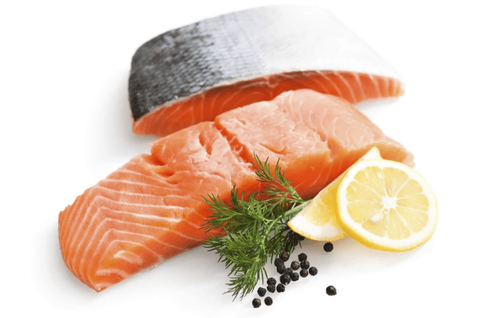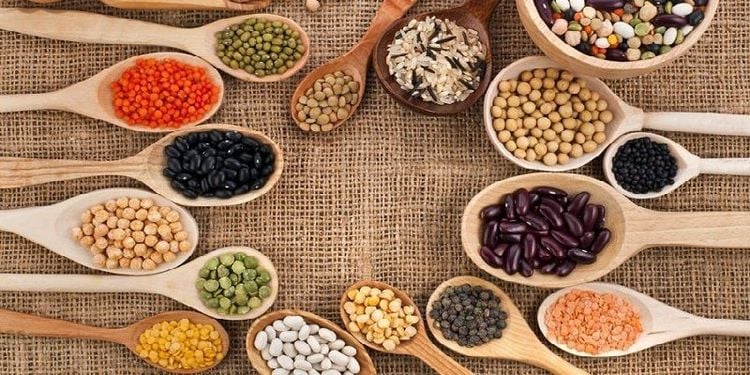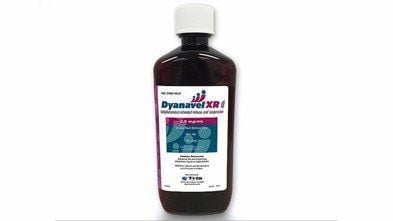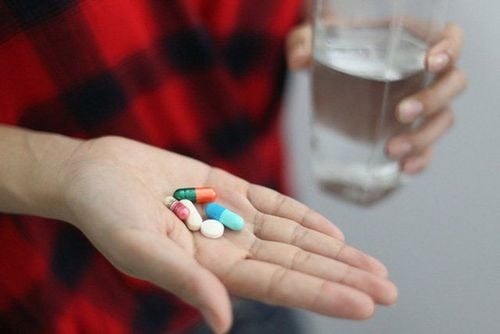This is an automatically translated article.
The article was written by MSc.Dr. Nguyen Thanh Long - Psychologist, Vinmec Times City International General Hospital.Postpartum women have higher than normal energy and nutritional needs to provide nutrients for the mother, and at the same time convert nutrients into breast milk. For women with postpartum depression, a healthy diet is very important in the treatment and prevention of other mental disorders.
1. Nutrition for mothers with depression after childbirth
First of all, postpartum women need to eat a lot of foods with high nutritional value, containing a lot of protein, calcium, iron such as beef, eggs, milk, animal liver and kidney. Bean products can be foods with very high calcium content... Besides, you need to eat a variety of foods, you can't eat to your liking, you don't have to eat more than one type of food. Here are the nutritional ingredients women with postpartum depression should supplement:
1.1. Protein Protein is an important nutritional component in the daily diet of people with depression because protein stimulates hormone production for pregnant or new mothers. Foods such as: lean meat, poultry, pork leg, sea cucumber fish, peas, other nuts, ...
Some other sources of protein, such as chicken, tuna, contain trace amounts. an amino acid called tyrosine, which can increase stress-reducing chemicals in the brain. Women who are pregnant or have just given birth need to eat 2-3 servings of protein per day.
In particular, Salmon is a nutritious food that is very suitable for new mothers. Like other fatty fish, salmon is high in DHA which is important for the development of your baby's nervous system.

Cá hồi là món cung cấp chất dinh dưỡng rất thích hợp cho những bà mẹ mới sinh
During pregnancy and breastfeeding, the mother needs a lot of calcium to help the baby's bones develop well, so in the postpartum menu, it is indispensable for dairy products. It is very important to supplement calcium to meet the needs of yourself and your baby. You should drink at least 705 ml of milk per day to meet this need.
1.3. Nutrients The nutritional value of food for mothers after giving birth needs to be varied, especially when nursing. The mother also needs to consider the nutritional value of certain familiar foods. For example, corn and potatoes are beneficial foods with little nutritional value. You should change the dishes and ingredients for daily processing, in order to provide adequate vitamins and minerals, especially for women with postpartum depression
1.4. Vegetables Green vegetables like spinach, broccoli and broccoli are rich in vitamin A, which is good for you and your baby. In addition, vegetables are also a very rich source of calcium, vitamin C and iron. This is also a very good food group for postpartum mothers because vegetables contain a lot of heart-healthy antioxidants but are low in calories.
In addition to vegetables, you also need to supplement nutrition from beans such as: chickpeas, cowpeas, broad beans, tofu, bean sprouts, ear sprouts, lotus root, melon, spinach, wood ear. white, radish, carrot, shiitake, potato, taro, sweet potato, green bean,...especially dark beans like black beans or kidney beans. Beans are a very good food for mothers after giving birth thanks to their rich amount of iron and vegetable protein.
1.5. Fruits Postpartum and breastfeeding women should eat at least 150g of fruit or juice per day. You can add your favorite fruits but don't forget to add citrus fruits for extra energy.
Postpartum mothers need more vitamin C than pregnant women, so they need to supplement this vitamin with citrus fruits, ... in addition, grapes, apples, peaches, pineapples, bananas, peppers, persimmons are also very good. beneficial for postpartum women.
Blueberries are also a very appropriate choice to help you meet the nutritional needs of postpartum mothers. This berry is both delicious and packed with vitamins and minerals that are good for you. In addition, blueberries provide you with a healthy dose of carbohydrates to sustain energy throughout the day.
1.6. Whole grains As a mother, you may have to stay up at night to take care of your baby, so you always need an energetic breakfast. The healthy and high-energy postpartum mom food you can try are whole grains. Many grains are also fortified with essential vitamins and nutrients to help you meet your daily needs more fully.
You can use whole grains, fruit and fat-free milk to make a quick and healthy breakfast for yourself.
If you don't want to eat cereal, you can also replace it with whole grain bread. This bread is made from whole grains and contains folic acid which is important for your baby's development. This postpartum mother food also helps you keep your own health even better.

Ngũ cốc nhiều vitamin và chất dinh dưỡng cho cơ thể
Instead of cutting carbs out of the menu, add good carbs from brown rice to maintain your energy. Brown rice will help you get the calories you need to make better quality milk for your baby.
2. Foods that should be abstained after giving birth
You should not only focus on foods for the mother after giving birth, but ignore the foods you should abstain to have a more comprehensive view of what to eat and what to abstain after giving birth.
2.1. Garlic Garlic is a favorite spice of many adults, but the pungent taste of garlic is not pleasant for babies, so this is still a dish you should avoid in the menu for postpartum women. If you eat a lot of garlic, breast milk may also be affected by this strong taste and the baby will be more lazy to suckle.
2.2. Coffee Coffee helps you feel more awake and energetic, but it can have a negative effect on your baby's sleep. The caffeine in coffee can make your baby sleepy and irritable.

Caffein trong cà phê có thể khiến bé mất ngủ và khó chịu
2.3. Chocolate Chocolate also contains caffeine, so it will have the same effect as coffee on your baby's sleep. If your baby shows signs of insomnia and fusses when you eat chocolate, you should temporarily stop this dish.
2.4. Alcohol Alcoholic beverages such as beer can affect your breastfeeding process, so it is definitely not on the menu for postpartum women. Alcohol can make your baby lethargic, tired, and gain weight abnormally. Furthermore, alcohol can also significantly reduce your milk production.
2.5. Peanuts Peanuts are foods that are very likely to cause allergic reactions and these reactions are often very serious such as hives, difficulty breathing, diarrhea... So you should be careful to avoid foods with peanuts when eating. are currently breastfeeding in case the baby has a peanut allergy.
2.6. Spicy foods Eating too spicy is not good for your health, even if you don't have children and don't care what you should eat and avoid after giving birth. Eating spicy foods can not only irritate your digestive system, but can also have an adverse effect on your baby's intestines and blood quality.
2.7. Greasy When you are a newborn and breastfeeding, you should stay away from greasy foods because these foods will make you accumulate bad fat. This not only affects your body shape but also negatively affects the quality of milk. Try to prioritize boiled foods and avoid fried foods.
Please dial HOTLINE for more information or register for an appointment HERE. Download MyVinmec app to make appointments faster and to manage your bookings easily.
Article reference source: Webmd.com












